The Writing Life of: Amer Anwar
Amer Anwar
This week I am thrilled to be interviewing author Amer Anwar. Amer will be sharing with us details of his writing life, telling us all about his new book ‘Stone Cold Trouble‘, which was released on 24th September 2020, and answering a few fun questions too. This post contains affiliate links.
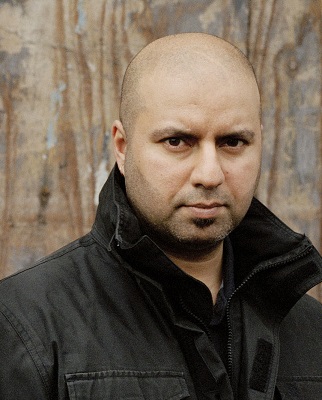
Amer Anwar grew up in West London. After leaving college he had a variety of jobs, including, warehouse assistant, comic book lettering artist, driver for emergency doctors and chalet rep in the French Alps. He eventually settled into a career as a creative artworker/graphic designer and spent a decade and a half producing artwork, mainly for the home entertainment industry.
He has an MA in Creative Writing from Birkbeck, University of London. His critically acclaimed debut novel, Brothers in Blood won the Crime Writers’ Association Debut Dagger and was picked by the Times and Guardian as one of the books of their year. His second novel, Stone Cold Trouble, was longlisted for the CWA Gold Dagger. He is currently working on the next book in the Zaq & Jags series.
1) Did you enjoy writing when you were a child?
Yes, I did. I think I started writing stories pretty soon after I learned how to read. I would write short pieces for school and then work on my own stuff too.
I really enjoyed doing it but, somehow, during secondary school there didn’t seem to be any emphasis on creative writing, it was all factual essays and so there wasn’t really any encouragement in that direction. I therefore grew up thinking writing wasn’t something I could pursue. Added to that was the fact I didn’t see people like me, from my background, (working class, Asian, single-parent family) writing the sort of books I liked to read, which were all genres; horror, war and fantasy to begin with, and then later crime and thrillers.
2) Which author shaped your childhood?
I don’t think I could narrow it down to any single one. I loved Enid Blyton’s Secret Seven books and devoured them, all borrowed from the school library, but it was an abridged children’s version of Alexander Dumas’ The Count of Monte Cristo that really captured my imagination and turned me into a voracious reader at an early age. I loved the sheer excitement and adventure of it. So much so that I read it in one night. It was only about 90 pages or so, much shorter than the full version but at that time it was the longest book I’d ever read, and it felt like a real accomplishment to finish it so quickly. The next day, I returned it to school and took out Escape from Colditz, which I whizzed through the next night.
Around the age of 9-10, I was really into horror movies, the old black and white RKO and Universal ones and the Hammer horror stuff but I wasn’t always allowed to watch them, and certainly couldn’t have gone to see any of the newer stuff at the cinema, so I started reading horror novels to get my fix. James Herbert was the first horror author I read and, a little later, I can still clearly remember the thrill of reading Alan Dean Foster’s novelisation of Alien. Alongside horror, I was heavily into WWII and started reading an author named Sven Hassel. I read all his books, so he was another who shaped my childhood.
3) What motivated you to begin your first novel?
A few different things. The first was reading a book called ‘Magician’ in my teens. It was an epic fantasy novel and I’d never read anything like it before. When I finished it, it left me with such a sense of awe, first because of the amazing story and second, because of how many different things the author had made me feel while I was reading it; laughter, joy, terror, anger, you name it. I knew right then that I’d love to be able to do that too. But I didn’t see anyone like me writing books so thought it was just something I’d dream about, not something I’d actually be able to do.
Years later it was reading crime and thriller novels which got me thinking that, if ever I wrote a book, I could set it in my part of west London. I didn’t see any characters like myself or my friends in the books I was reading, and I thought there was a wealth of people and stories I could draw on that would work brilliantly in a novel. That idea stayed with me until, in my mid-30s, when I eventually took a writing course to see if it was something I could do.
My early stories writing received really good feedback and I thoroughly enjoyed writing again after such a long time. That course led onto another one, during the second year of which I started work on what would become my first novel, Brothers in Blood.
4) Do you plot your book, or are you a pantser?
I’d never tried writing a book before I started Brothers in Blood so didn’t have any idea how to go about it. I began with a vague idea for a story and just began to write, sometimes without knowing where it was heading. I was writing in my spare time around work, family and studying, so it was a long and slow process.
After a year, I was about halfway through the first draft and was finding it difficult to remember some of the chronology and details of things I’d already written, which meant going through pages and pages to check things. So I wrote a kind of retroactive plan of what had happened in the books so far – and found it really helped me get a handle on the structure of what I’d written. I found it so useful, I carried on and began planning ahead as far as I could, only very loosely, just a sentence or two about what I thought might happen. Sometimes I stuck to it and sometimes I’d have a better idea and it would change but I found the planning really helped me work out some of the plot, structure, ideas and timeline, so I am now very much a plotter.
5) What is your average writing day?
I don’t really have an average writing day. When I started writing Brothers in Blood, I was working full-time, studying in the evenings and spending time with my family as well, so my writing was done just on weekends and evenings, whenever I could snatch some time. Then I was made redundant and took some time off work to concentrate on writing. I received a grant from Arts Council England which allowed me to spend some more time on the book, so then my days felt like proper writing days.
I’d generally get up about 8.00am-9.00am, make some tea and start writing. A break for lunch, maybe go for a walk, then back to write until about 6.00pm. If the writing was going well, I might do a little more between 10.00pm-midnight. When I went back to work full-time, I had to commute right across London, which meant long days and I didn’t get much writing done at all for about a year. Then I was a stay-at-home dad for a few years and would write while my daughter napped and after she’d gone to bed in the evening. When she started nursery school, I got a part-time job so I still had some time to continue editing the book.
For my second novel, Stone Cold Trouble, I had a deadline and needed to focus on writing, so I lived off savings and loans for as long as I could and then another grant from the Arts Council. It wasn’t easy but it meant I could write full-time, for a while anyway.
Now, working on book three, I’m working full-time again and it is proving very difficult to find time to write. Attached is a photo of the small desk where I write. I finished Brothers in Blood right there and wrote the whole of Stone Cold Trouble there too. It looks like books 3 and 4 will most probably be written in the same spot as well.
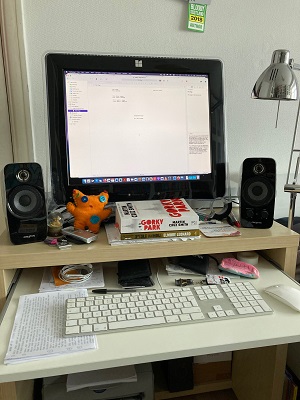
Where Amer Anwar Writes
6) What is the best thing about being an author?
Hearing from people that they have enjoyed my books. The main reason I wanted to write in the first place was to entertain, just as I was so thoroughly entertained by ‘Magician’ all those years ago. When readers have enjoyed one of my books and take the time to leave a positive review or get in touch to say how much they liked it, it makes the hours, days, months – and years of writing and editing the books all worth it.
Zag & Jags
Publisher – Dialogue Books
Pages – 464
Release Date – 20th September 2020
ISBN 13 – 978-0349700342
Format – ebook, paperback
Synopsis
Set in the heart of West London’s Asian community, this is the latest instalment in the unmissable ZAQ & JAGS series . . .
Trying – and failing – to keep his head down and to stay out of trouble, ex-con Zaq Khan agrees to help his best friend, Jags, recover a family heirloom, currently in the possession of a wealthy businessman. But when Zaq’s brother is viciously assaulted, Zaq is left wondering whether someone from his own past is out to get revenge.
Wanting answers and retribution, Zaq and Jags set out to track down those responsible. Meanwhile, their dealings with the businessman take a turn for the worse and Zaq and Jags find themselves suspected of murder.
It’ll take both brains and brawn to get themselves out of trouble and, no matter what happens, the results will likely be deadly. The only question is, whether it will prove deadly for them, or for someone else . . . ?
Purchase Online From:
7) How did you go about researching the content for your book?
My latest book is Stone Cold Trouble, which features the main characters from Brothers in Blood, ex-con Zaq Khan and his best friend Jags, once again, as they get caught up in yet more tricky situations, and the setting was mostly the same as were a lot of the supporting cast – so I was able to make use of much of the research I did for the first book – though there are new characters and locations too.
Some of the action takes place away from Southall in this story but fortunately in areas that I also know a bit about, so I was able to do location research using Google Maps, Google Earth and Street View, to pick the right places to set the action. There were other elements of the story that I had to do more in-depth research for, reading some books for background and then doing some further digging online.
8) How long did it take to go from the ideas stage to writing the last word?
Brothers in Blood took eight years to write – two years to finish the first draft and the rest of the time rewriting and editing until it was ready to go out to publishers. Stone Cold Trouble took two years from start to finish.
The first book really was my grounding in how to write a book and I feel I learned a lot doing it, which all helped me write the second. I also had a very rough plan of the book before I started writing, which helped me keep on track, though it was a very fluid plan and changed a lot during the process, as new and better ideas would come to me. I also had a publisher waiting for the second book, so I had to do it a lot quicker.
9) What made you choose the genre you write in?
I think it was reading books by the late, great Elmore Leonard, one of my very favourite authors, that made me want to write crime thrillers. He writes such fantastic characters and some of the best dialogue in fiction. Reading his books, I also saw that crime thrillers didn’t need to have a police detective or private eye as the main character. It could be regular people getting caught up in risky situations with dodgy people – and some of his characters made me think of people I knew and stories I’d heard, and I realised I could write about those things and set them in places I knew.
A crime thriller was the perfect vehicle to tell a story with those sorts of characters and write the kind of book I would want to read myself.
10) How did you come up with the name(s) for your lead character(s)?
Through trial and error. I basically wrote out a list of different possible names for my characters and tried out the ones I liked best to see if they would work.
I’d start writing the characters with certain names to see if they fit, if a particular name helped conjure the right image of the character I was trying to create. I think I tried a few names out for a lot of the characters. I’d start writing with one name and after a while, if I felt it wasn’t working, I’d change it – and have to go back through everything I’d already written to change it everywhere. But, when I did hit on the right name, it really helped the character spring to life in my imagination and then take shape on the page.
11) Can you give us an insight into your characters?
My main protagonist is an ex-con named Zaq Khan, who’s spent five years in prison for a violent crime and is now just trying to stick to the straight-and-narrow and rebuild his life. His criminal record has earned him a reputation though he’s really a good guy who wants to do the right thing and stay out of trouble. Unfortunately, trouble has a way of finding him.
The book(s) are set in the large Asian community of Southall in West London, and so nearly all of the characters are from that background – young and old, male and female, traditional and modern, covering a wide spectrum. As with any such community, they’re proud of their culture and it plays an important part in both books. Food, music, language, religion, it all gets a look-in and hopefully lends the books a unique character of their own.
12) How did you feel when you had completed your book?
Bloody marvellous! With Stone Cold Trouble there was a certain weight of expectation, especially after Brothers in Blood had been so well received (it was a Times and Guardian Thriller of the Year) so the follow up had to live up to it.
All the way through the writing, I worried if it would be good enough. It was an added pressure. I also no longer had the luxury of unlimited time to write it in. I had a publisher waiting for it. Reaching the end of the first draft was great – but even better was reading it through and finding that it wasn’t as bad as I’d feared it might be.
Fun Questions
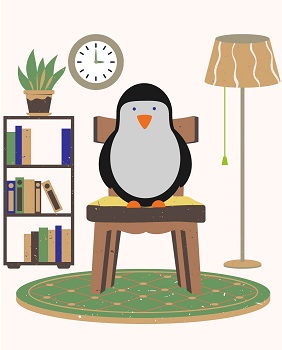
1) Do you have a favourite quote you live by?
I think the one that I repeat most often to myself is one attributed to Ernest Hemingway, “The first draft of anything is always shit.” He’s not wrong. I spent a lot of time, when I first tried writing a novel, getting hung up on trying to make everything read perfectly, which meant I made very slow progress. When I finally got going, I stuck to the maxim of “don’t stop to edit. Keep going forward until you get to then end then go back and fix things’ – and that’s what I did.
When I finally finished the first draft of Brothers in Blood, I thought I’d done a pretty decent job – until I read it back and found that Hemingway was absolutely right. But I had a complete first draft, a whole book. All I had to do was keep editing to make it less shit and hopefully, one day, even pretty good.
2) Do you have any pets?
I don’t have any pets – but I do have this little stuffed creature my daughter made at school and gave me to keep me company while I write. She says it’s an owl.
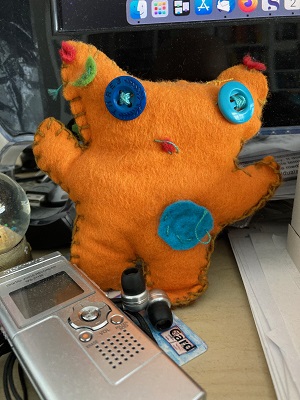
3) What’s on your current reading list?
Too much to mention here. I am a serial book buyer. I can’t help it. I have way more books than I currently have time to read. Last time I did a rough estimate, I worked out it would take me about 10 years to get through the books I have waiting to be read – and that will only have increased since then. Plus, what I think I’ll read next, always changes depending on what else I buy, or what I happen to feel like reading as the mood takes me.
I have just bought Slough House by Mick Herron, which I hope to read very soon and am very much looking forward to Razorblade Tears by S.A. Cosby. I also just bought Brian McGilloway’s first three novels, which I’ve heard very good things about and am also eager to read the latest books by Abir Mukherjee and Vaseem Khan. I’m also looking forward to reading Miss Benson’s Beetle by Rachel Joyce, which just won the Wilbur Smith Adventure Writing Prize. I never used to reread books, but now I also regularly go back and reread favourite authors such as Elmore Leonard and Richard Stark, so I will be reading some of those books too.
4) Your book has been made into a feature film, you’ve been offered a cameo role, what would you be doing?
If only I’d written a globetrotting James Bond type spy thriller, then I could go sip cocktails on an exotic beach somewhere, but my books are set quite locally to me in London, so I won’t be venturing far. There are quite a few pubs mentioned in the books, so I guess maybe I could be a customer in one of those or, even better, I could turn up in every pub they go to.
5) If you could travel to the fictional world of any book for the day, which would you choose?
There are so many to choose from … but I think I’ll go for a day aboard ship with Captain Jack Aubery and Dr Stephen Maturin, from the novels by Patrick O’Brian, on one of their finer sailing days, with a good dinner and lots of fine wine at the captain’s table.
6) There’s a penguin sitting in your writing chair, what is the first thing he says to you?
“Why the f*ck aren’t you sitting here writing?!”
I would like to say a big thank you to Amer Anwar for sharing with us details of his writing life and for a wonderful interview.

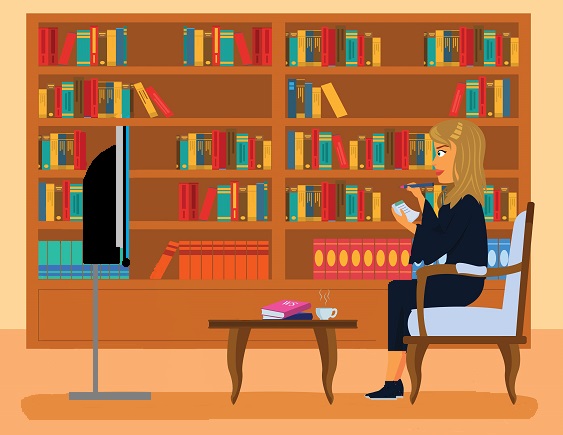
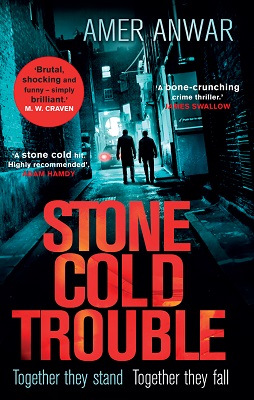





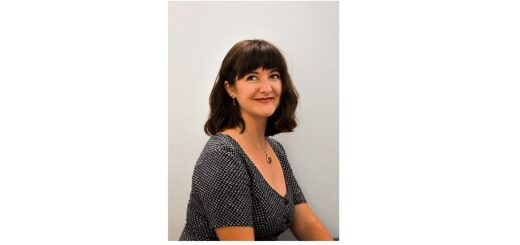
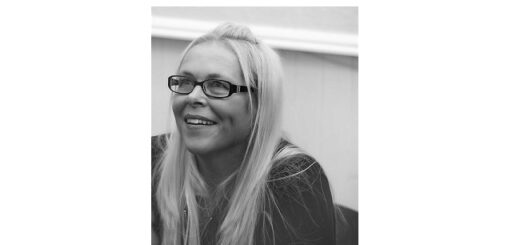
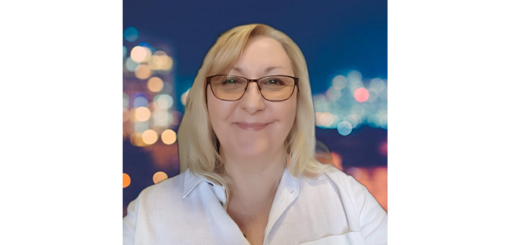

I found it interesting how finding the right name for the character made everything start to click.
Thank you DJ. Good to hear you found the interview interesting.